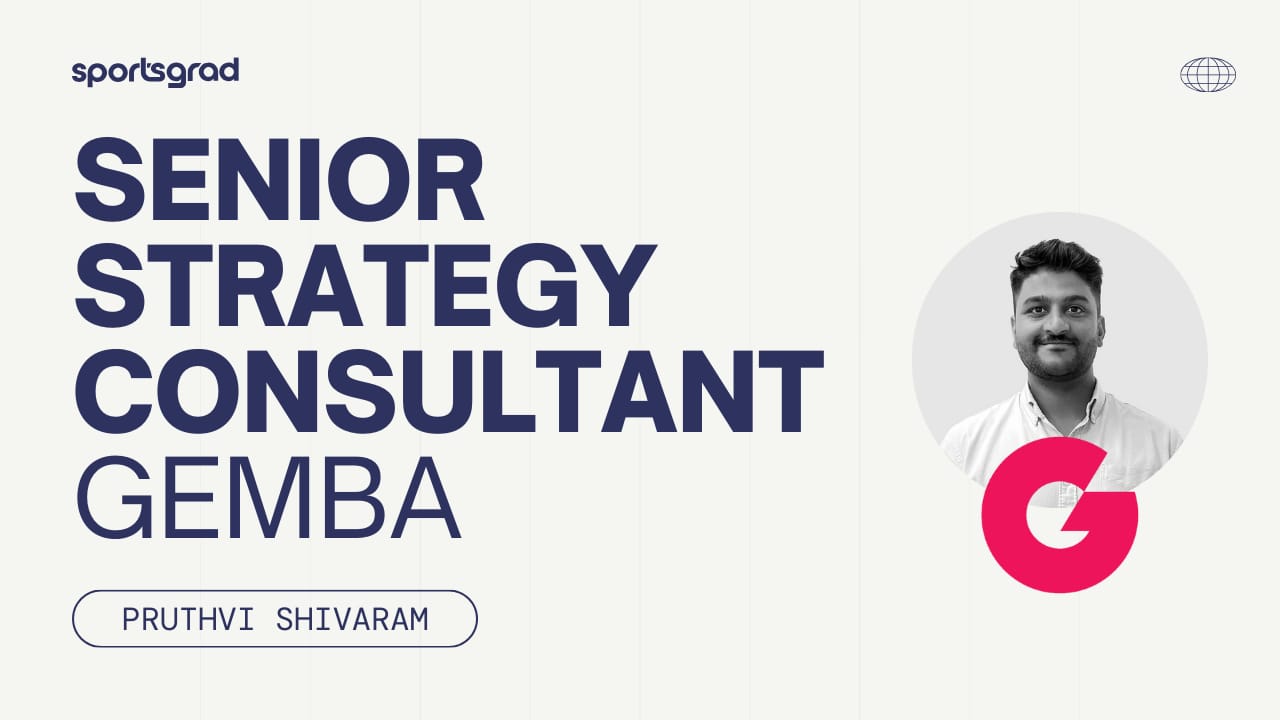Senior Strategy Consultant | Gemba
Learn how Pruthvi made a career change from engineering into sport, landed in the Strategy team at Cricket Australia, and then leveraged that into a role at one of Australia's top sports marketing agencies.

Hello, welcome to The Ultimate Guide to Jobs in Sport! 👋
Here you’ll find interviews with (almost) every job in the sports industry.
We ask people living the dream:
“How did you get your job?” and “What does it actually involve?”
So that you can land a dream job in sports too.
Enjoy!
How Pruthvi Shivaram went from Engineering to Strategy Consulting at Gemba, via Cricket Australia

Learn how over 300+ people landed dream jobs in sport
The textbook every sports job hunter needs: 'The Ultimate Guide to Jobs in sport'
Already a paying subscriber? Sign In.
Lifetime access to all information in one place:
- • Use it write stand-out tailored job applications
- • Save yourself 1000s of hours networking for the information
- • Find what you need quickly and filter by function or sport
